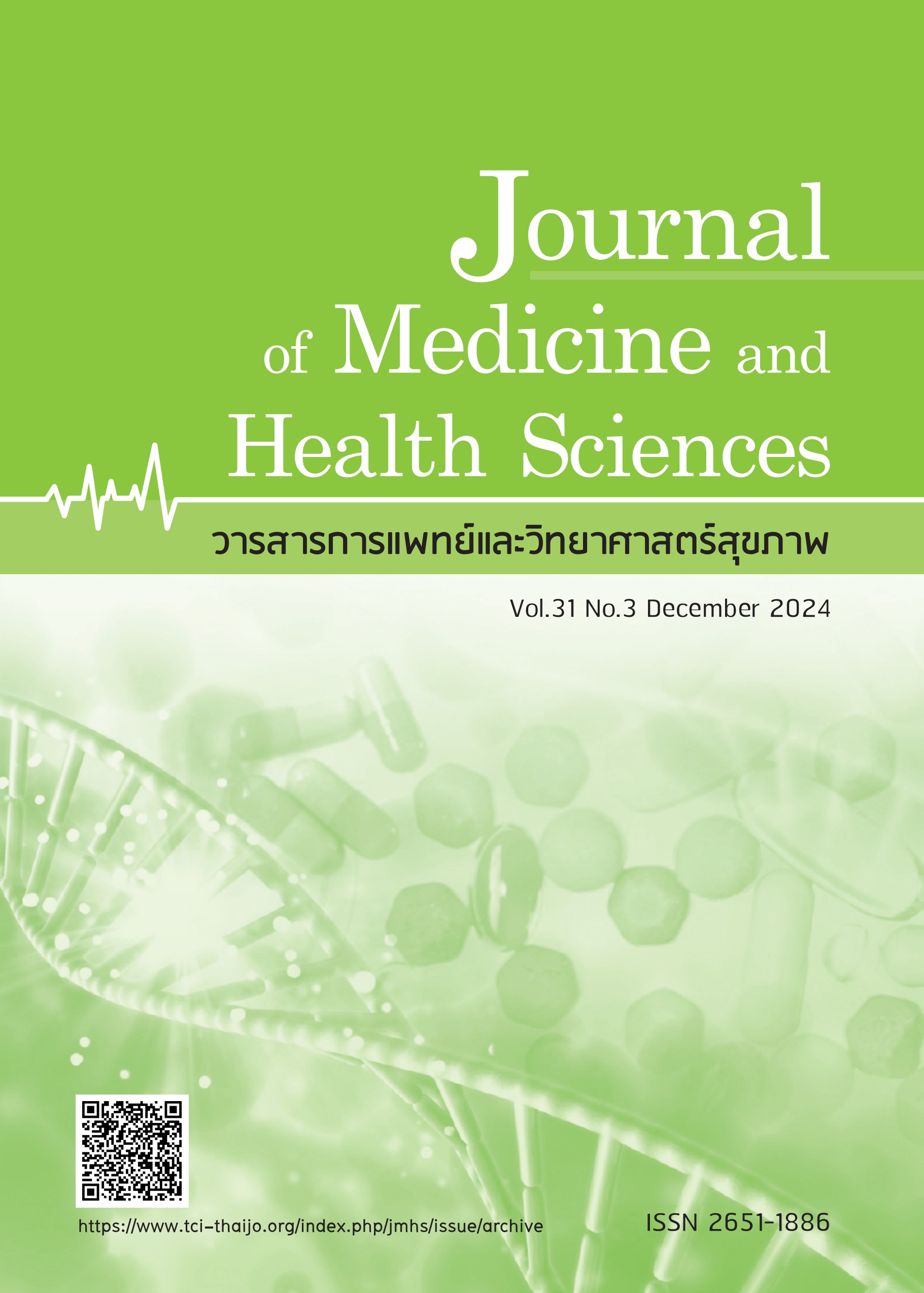Cryptococcal meningitis with cryptococcemia in a multiple sclerosis patient treated with Fingolimod: A case report
Keywords:
cryptococcosis, fingolimod, multiple sclerosisAbstract
Multiple sclerosis (MS) is one of the most common diseases of the human central nervous system, causing significant neurological disability. Fingolimod, a sphingosine-1-phosphate receptor modulator, is an approved oral therapy for relapsing-remitting multiple sclerosis (RRMS) that works by decreasing the egress of lymphocytes from lymph nodes to the central nervous system. Despite its effectiveness in treating MS, Fingolimod can increase the risk of opportunistic infections due to its immunosuppressive effects. A 34-year-old male was diagnosed with MS in 2017, presenting with spastic gait, paraparesis, and a history of left homonymous hemianopia. He was prescribed Fingolimod in September 2019 following a relapse. About four years after starting Fingolimod, he developed severe headaches and visual impairment. Initially treated for an MS relapse with methylprednisolone, he returned two weeks later with progressive loss of consciousness and confusion, and was subsequently diagnosed with disseminated cryptococcosis. Hemoculture and cerebrospinal fluid culture confirmed the presence of Cryptococcus neoformans. Due to clinical worsening and acute renal injury, the patient was treated with liposomal amphotericin B and fluconazole, after receiving routine induction therapy with amphotericin B and flucytosine. The patient underwent serial lumbar punctures every other day for intracranial pressure management. After two weeks of treatment, he was discharged with significant improvement and no major complaints.
References
Tafti D, Ehsan M, Xixis KL. Multiple sclerosis. In: StatPearls [Internet]. Treasure Island (FL): StatPearls publishing; 2024 [cited 2024 Mar 8]. Available from: http://www.ncbi.nlm.nih.gov/books/NBK499849/.
Thompson AJ, Banwell BL, Barkhof F, et al. Diagnosis of multiple sclerosis: 2017 revisions of the McDonald criteria. Lancet Neurol 2018;17:162-73. doi:10.1016/S1474-4422(17)30470-2.
Sharma S, Mathur AG, Pradhan S, et al. Fingolimod (FTY720): First approved oral therapy for multiple sclerosis. J Pharmacol Pharmacother 2011;2:49-51. doi:10.4103/0976-500X.77118.
Pertento.fda.moph.go.th. [Internet]. [cited 2024 Sep 6]. Available from: https://pertento.fda.moph.go.th/FDA_SEARCH_DRUG/SEARCH_DRUG/FRM_SEARCH_DRUG.aspx. (in Thai)
Kappos L, Antel J, Comi G, et al. Oral Fingolimod (FTY720) for Relapsing Multiple Sclerosis. N Engl J Med 2006;355:1124-40. doi:10.1056/NEJMoa052643.
Renoux C. Natural history of multiple sclerosis: Long-term prognostic factors. Neurol Clin 2011;29:293-308. doi:10.1016/j.ncl.2011.01.006.
Minneboo A, Barkhof F, Polman CH, et al. Infratentorial lesions predict long-term disability in patients with initial findings suggestive of multiple sclerosis. Arch Neurol 2004;61:217-21. doi:10.1001/archneur.61.2.217.
Grebenciucova E, Reder AT, Bernard JT. Immunologic mechanisms of Fingolimod and the role of immunosenescence in the risk of cryptococcal infection: A case report and review of literature. Mult Scler Relat Disord 2016;9:158-62. doi:10.1016/j.msard.2016.07.015.
Handley G, Hand J. Adverse Effects of Immunosuppression: Infections. Handb Exp Pharmacol 2022;272:287-314. doi:10.1007/164_2021_550.
Jalkh G, Abi Nahed R, Macaron G, et al. Safety of newer disease modifying therapies in multiple sclerosis. Vaccines (Basel) 2020;9:12. doi:10.3390/vaccines9010012.
Carpenter K, Etemady-Deylamy A, Costello V, et al. Cryptococcal chest wall mass and rib osteomyelitis associated with the use of Fingolimod: A case report and literature review. Front Med (Lausanne) 2022;9:942751. doi:10.3389/fmed.2022.942751.
US Food and Drug Administration. (2012). Gilenya prescribing information. [Internet]. 2012 [cited 2024 Sep 6]. Available from: https://www.accessdata.fda.gov/drugsatfda_docs/label/2012/022527s006lbl.pdf.
Francis G, Kappos L, O’Connor P, et al. Temporal profile of lymphocyte counts and relationship with infections with Fingolimod therapy. Mult Scler 2014;20:471-80. doi:10.1177/1352458513500551.
Aoki R, Mori M, Suzuki YI, et al. Cryptococcal Meningitis in a Fingolimod-treated patient: Positive antigen test a year before onset. Neurol Clin Pract 2021;11:e549-50. doi:10.1212/CPJ.0000000000001051.
Anene-Maidoh TI, Paschall RM, Scott Graham R. Refractory cryptococcal meningoencephalitis in a patient with multiple sclerosis treated with Fingolimod: A case report. Interdiscip Neurosurg. 2018;12:8-9. doi:10.1016/j.inat.2017.10.005.
Del Poeta M, Ward BJ, Greenberg B, et al. Cryptococcal meningitis reported with Fingolimod treatment: Case series. Neurol Neuroimmunol Neuroinflamm 2022;9:e1156. doi:10.1212/NXI.0000000000001156.
Wienemann T, Müller AK, MacKenzie C, et al. Cryptococcal meningoencephalitis in an IgG2-deficient patient with multiple sclerosis on Fingolimod therapy for more than five years - case report. BMC Neurol 2020;20:158. doi:10.1186/s12883-020-01741-0.
Dobson R, Giovannoni G. Multiple sclerosis - a review. Eur J Neurol 2019;26:27-40. doi:10.1111/ene.13819.
Downloads
Published
How to Cite
Issue
Section
License
Copyright (c) 2024 Journal of Medicine and Health Sciences

This work is licensed under a Creative Commons Attribution-NonCommercial-NoDerivatives 4.0 International License.



